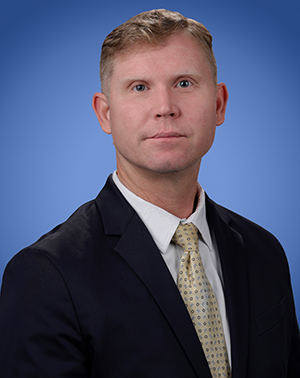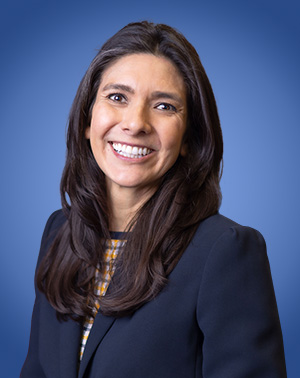The Litigation Practice Group is highly regarded in the legal community and in the judiciary, even being selected by superior court judges to pursue lawsuits on their behalf. Lozano Smith has successfully represented districts and other government entities at all levels of state and federal jurisdiction, and is a constant, powerful advocate for its clients when they often need it the most.
Areas of Practice
The Litigation Practice Group ensures the success and protection of its clients by specializing in:
- ADA and State Disability Laws
- Administrative hearings involving grievances, unfair practice charges, layoffs and dismissals, and arbitrations
- Charter School Issues
- Construction Advice and Litigation
- Discrimination, Harassment and Retaliation
- Environmental Issues
- Fair Labor Standards Act
- Personal Injury and Tort Defense
- Personnel Disputes
- Police Civil Rights
- Section 1983 and Civil Rights
- Student Issues
- Traditional and Administrative Writ of Mandate
Civil Litigation
Our team is fully-equipped to handle the sweeping range of litigation experienced by our clients throughout the state. Lozano Smith attorneys work in partnership with clients in identifying the strengths and weaknesses of any lawsuit early on as well as developing a strategy that assures your best interests are advanced. Given the landscape and climate of the political arena, a "win" does not always equate to being victorious in the courtroom. When litigation is necessary, our attorneys are capable and experienced in implementing a litigation plan - whether as a Plaintiff or Defendant - which leads to success. That success is easily recognized by the numerous verdicts obtained by our attorneys through both state and federal court. Likewise, our attorneys are also shrewd negotiators, where a negotiated resolution is the preferred outcome. Some of the highlights of our attorneys’ expertise include:
Our background in advising public employers provides us with the practical knowledge of such matters when it comes to negotiations, contract grievances, disciplinary appeals, unfair labor practice charges, and personnel investigations. We have represented and defended public sector employers in virtually all matters involving state and federal labor and employment laws, including:
- Title VII of the Civil Rights Act of 1964 / Civil Rights Act of 1991
- Fair Labor Standards Act / Equal Pay Act of 1963
- Age Discrimination in Employment Act of 1967
- Family Medical Leave Act
- Title I and Title V of the Americans with Disabilities Act of 1990
- Uniformed Services Employment and Reemployment Rights Act
- California Fair Employment and Housing Act
- Unruh Civil Rights Act
- California Family Rights Act and Pregnancy Disability
Real World Applications
The Litigation Practice Group works in partnership with clients, regularly communicating the status of their case, with an eye toward cost containment and ensuring they're timely informed about the progress of their case. When litigation is undertaken, a case budget is prepared, the client's approval is obtained for that budget and regular communication is maintained to keep the client informed of the status of the case as it is proceeding. The firm is experienced and well versed in various forms of ADR, including arbitration, mediation and both informal and formal settlement conferences.
California Federal District Court Enjoins Enforcement of “Parental Exclusion Policies”
IMPORTANT NOTE: On January 5, 2026, the Ninth Circuit issued an order granting the State’s motion for an emergency stay of the judgment and permanent injunction in Mirabelli v. Olson while it is pending on appeal before the appellate court. As a consequence, the permanent injunction issued on a class-wide basis in Mirabelli and discussed below is presently not in effect.***December 30, 2025 Number 61 On December 22, 2025, in Mirabelli v. Olson, the United States District C...
Ninth Circuit Upholds Charter School Ban on Religious Curriculum
November 19, 2025 Number 52 The Ninth Circuit Court of Appeals has ruled that charter schools can refuse to purchase religious curricular materials for their independent study programs. The decision in Woolard v. Thurmond, No. 24-4291 (9th Cir. 2025) 152 F.4th 1050, affirms that charter schools remain public in nature, even when instruction occurs in the home setting. The ruling resolves a constitutional challenge brought by parents who argued that charter school independent study pr...
Ninth Circuit Rules Age Act Does Not Apply to Medical Residency Admissions
October 30, 2025 Number 45 The Ninth Circuit Court of Appeals has ruled that the federal Age Discrimination Act of 1975 (Age Act) does not apply to decisions about whether to admit applicants to medical residency programs. In Spatz v. Regents of the University of California (9th Cir. 2025) 151 F.4th 1068, the court held that selection of medical residents by university and other residency programs constitutes an “employment practice” rather than an educational one and ther...
Ninth Circuit Upholds LAUSD COVID-19 Vaccination Requirement for Employees During Pandemic
September 12, 2025Number 39Ninth Circuit Upholds LAUSD COVID-19 Vaccination Requirement for Employees During Pandemic In Health Freedom Defense Fund, Inc. v. Alberto Carvalho, et al. (9th Cir. July 31, 2025), Case No. 22-55908, __ F.4th __ , the Ninth Circuit Court of Appeals determined that the Los Angeles Unified School District’s (LAUSD) now-rescinded COVID-19 vaccination requirement for employees did not violate constitutional law because it was rationally related to protecting the...
Ninth Circuit Affirms: Racist Images Circulated Via Personal Text Not a “Matter of Public Concern” Entitled to First Amendment Protection
September 10, 2025 Number 38 The Ninth Circuit recently issued an amended opinion in Adams v. County of Sacramento (9th Cir. 2005) 143 F.4th 1027, a case involving a former Sacramento County sheriff’s captain, and former Assistant Chief of Police for the City of Rancho Cordova, Kate Adams (Adams) who alleged she was forced to resign after allegations surfaced that she forwarded racist images via text message. Adams filed a lawsuit against the County of Sacramento alleging her employe...
California Courts Provide Important Clarifications Regarding Public Employee Whistleblower Claims
August 26, 2025Number 37 In two separate back-to-back recent decisions, California courts have given important wins to public employers in defending against employee whistleblower lawsuits under Labor Code section 1102.5. First, in Brown v. City of Inglewood (July 7, 2025) 18 Cal.5th 33, the California Supreme Court determined, for the first time, that elected officials are not “employees” who may sue for retaliation under that whistleblower law. Second, in Lampkin v...
School District Granted Immunity from Liability After Denying Remote Work as a Reasonable Accommodation
August 20, 2025 Number 33 In a recent decision by the California Fourth District Court of Appeal, a public school district successfully asserted immunity from liability from an employee’s discrimination claims based on being denied permission to work exclusively from home after the COVID-19 pandemic as a reasonable workplace accommodation. In Allos v. Poway Unified Sch. Dist. (2025) 112 Cal.App.5th 822, the appellate court held that the employee’s claims under California’...
Representative Cases
| In Govan v. City of Clovis, Lozano Smith successfully obtained dismissal of several constitutional and other statutory claims asserted by a Plaintiff business operator against the City of Clovis and individual City police officers, where the Plaintiff challenged the City of Clovis’ sign ordinance and its enforcement. The District Court, entered judgment in the City’s favor following dismissal of all of the Plaintiff’s claims, which included several theories on the alleged violation of his First Amendment free speech rights, violation of his constitutional due process rights violation of his equal protection rights, and other state law claims. |
| Chisom et al. v. Bd. of Retirement et al. Court of Appeal, Fifth District. Case No. F064259 A recent published decision upholding a decade-old settlement agreement and rejecting a group of retired Fresno County employees' attempt to use parole evidence to advance an interpretation of the settlement agreement that would have allowed the former employees to pursue their claims for an "enhanced" non-service-connected disability retirement benefit. |
| Leonard Avila v. City of Los Angeles, et al. 9th Circuit Court of Appeal, Case No. 12-55931 where Lozano Smith successfully defended the City of Los Angeles and Los Angeles Police Department in an employment case. Following testimony, Lozano Smith asked the judge to dismiss certain claims because the officer had not introduced sufficient evidence. The judge agreed in part, and the jury was only asked to consider the officer's claims concerning retaliation under the FLSA and due process violations. The jury's verdict was a good one for the City and the LAPD, because they prevailed on the due process claim. |
| Assisted eleven school districts in invalidating audits of several state mandated cost reimbursement claims worth more than $30 million, based upon the use of invalid, underground auditing documentation rule by the State Controller's Office. The firm was later able to receive an award of $240,000 from the superior court for fees and costs incurred in the litigation efforts, largely offsetting the school districts' legal costs in the case. (Clovis Unified School District v. Chiang (2010) 188 Cal.App.4th 794.) |
| Shiell, et al. v. County of Los Angeles, et al., Los Angeles County Superior Court Case No. BC208582, Equal protection action claiming staff members of a non-profit, public benefit corporation were entitled to the same rights, salaries and benefits of County employees because they performed the same work. A dispositive motion was decided in the County's favor. |
| Hall, et al. v. County of Los Angeles, Los Angeles County Superior Court Case No. BC208583, Approximately 200 female attorneys of a non-profit, public benefit corporation brought a sex discrimination suit claiming they were not receiving the same salaries and benefits as male employees of the County, despite doing the same work. The County’s dispositive motion was ultimately granted on the grounds that plaintiffs were using improper male comparators and had not shown any indicia of discrimination. |
| Lozano Smith was part of the team representing Los Angeles Unified School District in Williams v. State of California, a massive statewide class action involving alleged conditions in public schools including alleged inequalities in school facilities, instructional materials and teachers, particularly at underperforming schools that were already the subject of various state and federal categorical programs. |
| Nathan G. v. Clovis Unified School District (2014) 224 Cal.App.4th 1393. Successfully defended school district’s involuntary transfer of student to continuation high school and obtained first published opinion interpreting the involuntary transfer statute, the appropriate level of judicial review in such cases, and the nature of other means of correction requirement under the law before imposing an involuntary transfer. |
| In Doe 1, et al. v. State of California, et al., Lozano Smith successfully represented Dinuba Unified School District by resolving litigation brought by the American Civil Liberties Union (“ACLU” and three of its affiliates – Northern California, Southern California, and San Diego), California Rural Legal Assistance, Inc., Asian Pacific American Legal Center, and Wilson Sonsini Goodrich & Rosati, PC. As lead counsel, the ACLU alleged inadequate monitoring of the District’s English Language Learner programs, and that the District maintained an educational method which they alleged violated federal law and the state constitution. The lawsuit presented new questions of law under federal education statutes as well as state constitutional provisions. The result for the District was significant, and substantially reduced liability and exposure – saving over $1,000,000 in claimed plaintiff's attorney fees. |
| A.A. v. Raymond (E.D. Cal. July 22, 2013) 2013 WL 3816565. Successfully represented Sacramento City Unified School District in defeating a bid to halt school closures by way of preliminary injunction, where the federal district court agreed that plaintiffs were unlikely to succeed on the merits of their equal protection, American Disabilities Act, and due process claims challenging the school closures. |
| Clovis Unified School District v. Chiang (2010) 188 Cal.App.4th 794. Assisted eleven school districts with invalidating audits of several state mandated cost reimbursement claims worth more than $30 million, based upon the use of invalid, underground auditing documentation rule by the State Controller’s Office. The firm was later able to receive an award of $240,000 from the superior court for fees and costs incurred in the litigation efforts, largely offsetting the school districts’ legal costs in the case. |
| Cal.200 et al. v. San Francisco Unified School District, San Francisco County Superior Court Case No. CGC-13-534975. Lozano Smith is representing multiple school districts in this statewide class-action lawsuit alleging violation of Physical Education instructional minutes in grades 1-6. The firm is effectively navigating a resolution of this case. |
| Anderson Union High School District v. Shasta Secondary Home School (2016) 4 Cal.App.5th 262. Lozano Smith successfully argued, in a case of first impression, that the geographic and site limitations of the Charter Schools Act (Ed. Code, § 47600 et seq.) are applicable to all charter schools, including “nonclassroom-based” programs. |
| Everett H. v. Dry Creek Joint Elementary School District (E.D. Cal. 2014) __ F.Supp.3d __, 2014 WL 1123802. Successfully established on motion to dismiss inability of plaintiff to state claims against individual district defendants under the IDEA, Title II of the ADA and section 504. |
| McIntyre v. Sonoma Valley Unified School District (2012) 206 Cal.App.4th 170. Successfully defended the school district against employee challenge to status and nonreelection. The California Court of Appeal reaffirmed key legal principles by holding that the school district correctly classified the employee as a temporary employee and then properly converted her to a probationary employee and properly and timely nonreelected employee during her second year of probationary employment. |
| Rimando v. Alum Rock Union Elementary School District (9th Cir. 2009) 356 Fed.Appx. 989. Successfully argued that a California public school district is a “State employer” for purposes of the Uniform Services Employment and Reemployment Rights Act of 1994 (USERRA) and consequently suits against school districts under USERRA must be filed in state court. The Rimando decision is the first of its kind by the Ninth Circuit to address USERRA suits brought against California public school districts. |
| Atwater Elementary School District v. Department of General Services (2007) 41 Cal.4th 227. Lozano Smith attorneys successfully represented a school district and convinced the California Supreme Court to issue a landmark decision holding that the four-year limitations period for a school district to bring dismissal charges against a teacher is not absolute. As a result, the Supreme Court adopted the school district’s contention that the four-year period should be extended based on principles of equity to permit the District to introduce evidence of sexual misconduct that was discovered by the district many years after it occurred. This important case strengthens the ability of all public school districts to impose discipline against certificated employees. |
| Alex G. v. Bd. of Trustees (E.D. Cal. 2005) 387 F.Supp.2d 1119. Successfully moved for partial summary judgment on behalf of the District, resulting in one of the first published decisions applicable in California to stand for the proposition that a plaintiff seeking to impose liability under section 504 in the context of special education “must show that the educational decisions relating to the student were so inappropriate as to constitute either bad faith or gross misjudgment.” |
| Modtech Holdings v. Pajaro Valley Unified School District. On two separate elementary school projects totaling $4 million, the District withheld substantial sums to cover damages caused the contractor. One project suffered a fire for which the contractor was not compensating the District for its damages. The other project suffered construction deficiencies in the stucco and roof. The contractor sued for improper withholding and the District cross-complained for additional damages, creating a $1 million dispute. After discovery and expert investigation revealed additional claims for the District, the case resolved very favorably for the District a few months short of trial. |
| K.M. v. Tustin Unified School District. In 2013 and 2014, represented the National School Boards Association and California School Boards Association as amicus curiae before the U.S. Supreme Court, in an attempt to convince the court to grant review of a Ninth Circuit opinion relating to the interaction between the IDEA and ADA. |
| Hildebrandt v. St. Helena Unified School District (2009) 172 Cal.App.4th 334. Lozano Smith attorneys authored an amicus brief on behalf of the California School Boards Association (CSBA) and asserted arguments that were adopted by the Court of Appeal in regard to bumping rights in a certificated layoff. This important case established a school district’s right to refuse to “split” an existing full-time certificated position during a certificated layoff to accommodate a more senior employee’s desire to “partially bump” into a more junior employee’s assignment. |
| Chavez v. City of Los Angeles (2010) 47 Cal.4th 970. Amicus counsel for the League of California Cities and the California State Association of Counties, in which the California Supreme Court sided with amici and the City of Los Angeles with regard to limits on the award of fees under the Code of Civil Procedure. |
| Morse v. Frederick (2007) 127 S.Ct. 2618. Amicus counsel for the National School Boards Association and the American Association of School Administrators. The Supreme Court of the United States upheld the right of a high school principal in Juneau, Alaska, to discipline a student who held up a banner proclaiming “BONG HiTS 4 JESUS” during a school-endorsed activity even without a showing of likely material disruption to the school environment. In doing so, the court overruled the previous decision of the Ninth Circuit Court of Appeals, which would have imposed personal liability on the principal for violation of the student’s First Amendment rights. |
| Eklund v. Byron Union School District (9th Cir. 2005) 154 Fed.Appx. 648. Represented the National School Boards Association and the California School Boards Association as amicus, where the district won the case before the U.S. Ninth Circuit Court of Appeals on a question involving religion in the schools. |













































